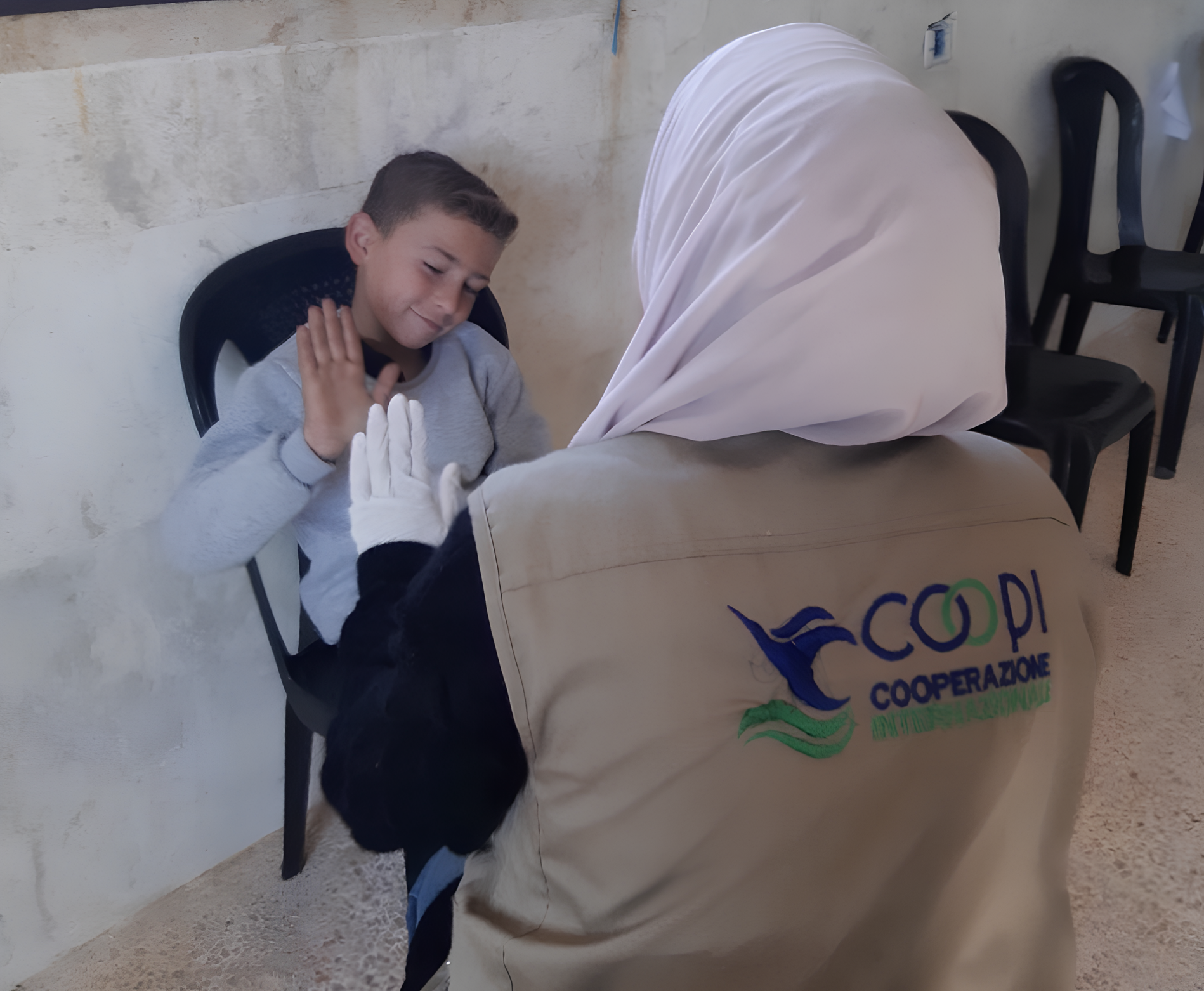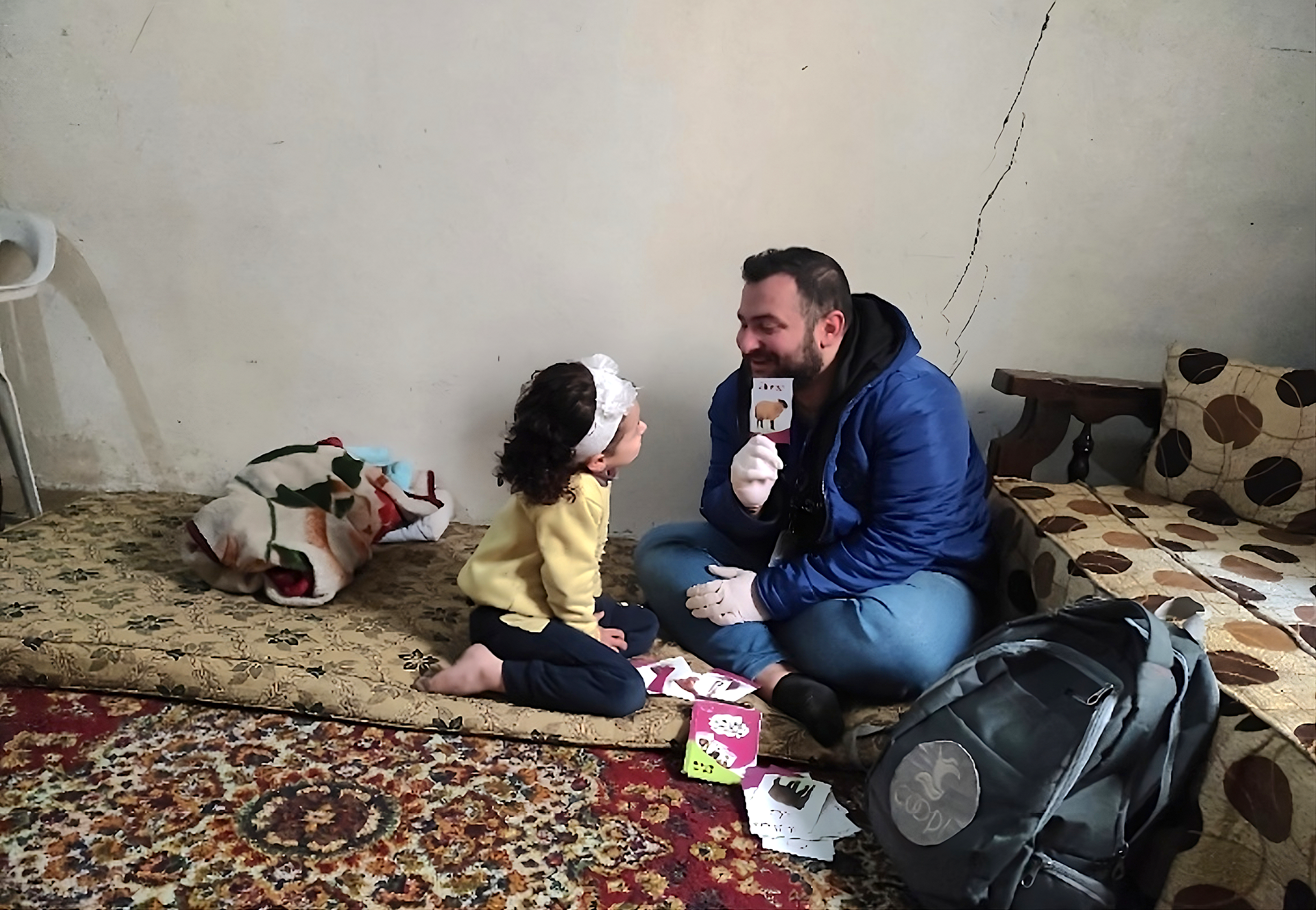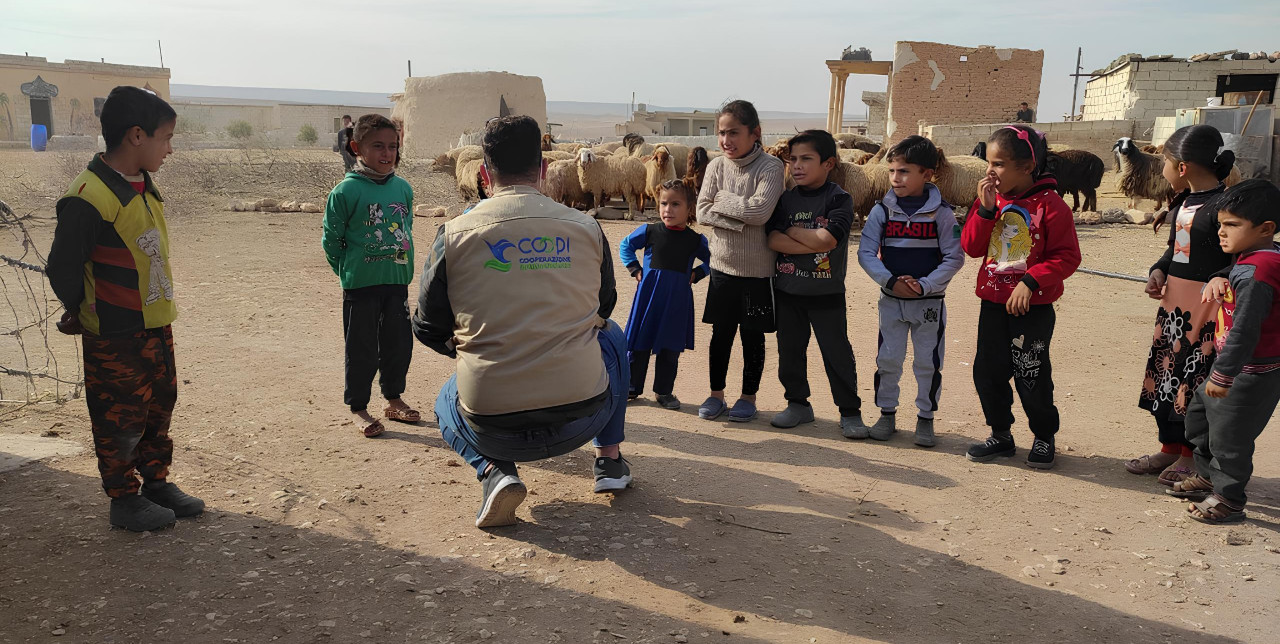22-04-2024 | di COOPI
Syria. Stories of hope in times of crisis
Humanitarian needs in Syria keep growing relentlessly. After 13 years of internal insecurity and a violent earthquake that struck on Feb. 6, 2023, the socio-economic situation continues to deteriorate, causing alarming levels of poverty. This multifaceted crisis is generating extremely high levels of vulnerability, leading a large part of the population in dire need of basic necessities and medical assistance. COOPI-Cooperazione Internazionale continues to support the population with emergency projects concerning food security, education and protection, among others.
Among many initiatives, COOPI is implementing two projects funded by the UN Coordination for Humanitarian Affairs (OCHA): the project "Provision of Integrated Protection Services to Enhance the Resilience of the Most Vulnerable Communities in Daraa, Aleppo and Raqaa," which started in November 2022 and will end in June 2024, and the project "Provision of Emergency Protection Services for Earthquake Affected People in Aleppo," which started in June 2023 and will end in August 2024.
Both projects focus on strengthening the resilience of the most affected populations, including children, women, people with disabilities, and the elderly, through the implementation of protective measures. In addition to outreach activities, COOPI supports the most vulnerable people through the support of key figures such as psychologists, speech and language therapists, and physical therapists. The stories of Darya, Abdel, Hanan, Fatima, and Rasha are tangible examples of how not only help, but also proximity and firsthand engagement can restore people's skills, hope, and enthusiasm.
Abdel

Abdel developed a severe stutter after a shell fell next to him during displacement from the Maarin area. Taunted by his classmates, he saw his suffering worsen, resulting in a decline in his academic performance. He thus began working with COOPI's speech therapist, who motivated and helped him through specific exercises and means such as pictures, stories, and conversations. Thanks to the intervention, Abdel has now reconnected with other children and is excelling in his studies.
Darya
Darya is six years old and lives in Aleppo. After the earthquake, she began to experience panic attacks, refused to sleep, was extremely afraid of very loud sounds, and was unable to get away from her mother in any way. COOPI's specialist asked the mother to do various activities with her daughter: telling her stories with happy endings before sleeping, drawing something that made her happy, telling her something she loves. Today Darya is able to sleep alone, is doing well in school, and her mother has also regained calm and serenity.
Hanan

Hanan was four years old when the earthquake caused her severe shock and she lost her ability to speak properly. The speech therapist focused on rehabilitating and encouraging the child through targeted exercises, as well as giving guidance to the parents on how to deal with their daughter's communication difficulties. Her improvement has been significant: since she could not pronounce her own name, the child can now attend school.
Fatima
Despite a herniated nucleus pulposus, Fatima was in charge of the entire family's livelihood. When COOPI, with support from the Syrian Humanitarian Fund (SHF), launched a project throughout Aleppo in November, Fatima was enrolled as a beneficiary receiving physical therapy treatments. Using ultrasound and targeted exercises, the therapy progressed, gradually restoring her movement ability and shoulder strength. She has now resumed her job and home commitments, facing each day with new vigor and gratitude.
Rasha
Rasha, 44, due to the effects of polio and other physical problems, was unable to stand and walk independently. After many treatment sessions with COOPI, Rasha returned to walking. No longer confined to her house, she is thrilled to have regained the ability to meet her daily needs and venture outdoors at will.
COOPI has been working in Syria since 2016 and is present in the areas of rural Damascus, Damascus, Dara'a, Hama, Homs, Raqqa, Lattakia, and Aleppo with projects in Protection, Education, WASH, Food Assistance, and support for family-based agricultural production and income-generating activities. These were complemented by earthquake response activities with own, private and institutional funds such as AICS, the United Nations Office for Humanitarian Affairs (OCHA), and the International Labor Organization, (ILO).




 Syria
Syria